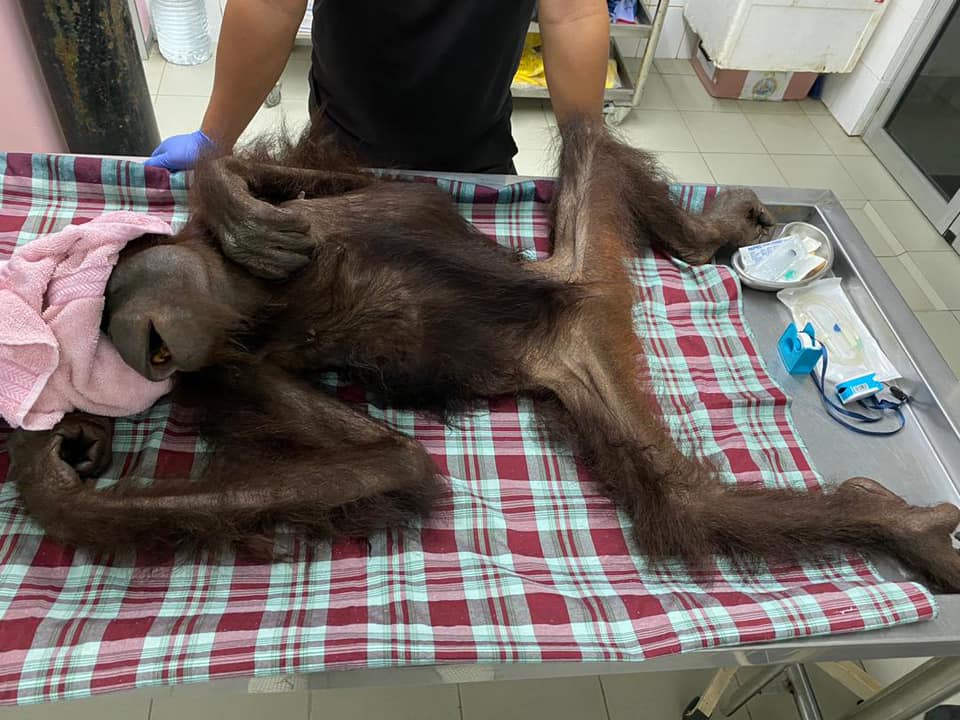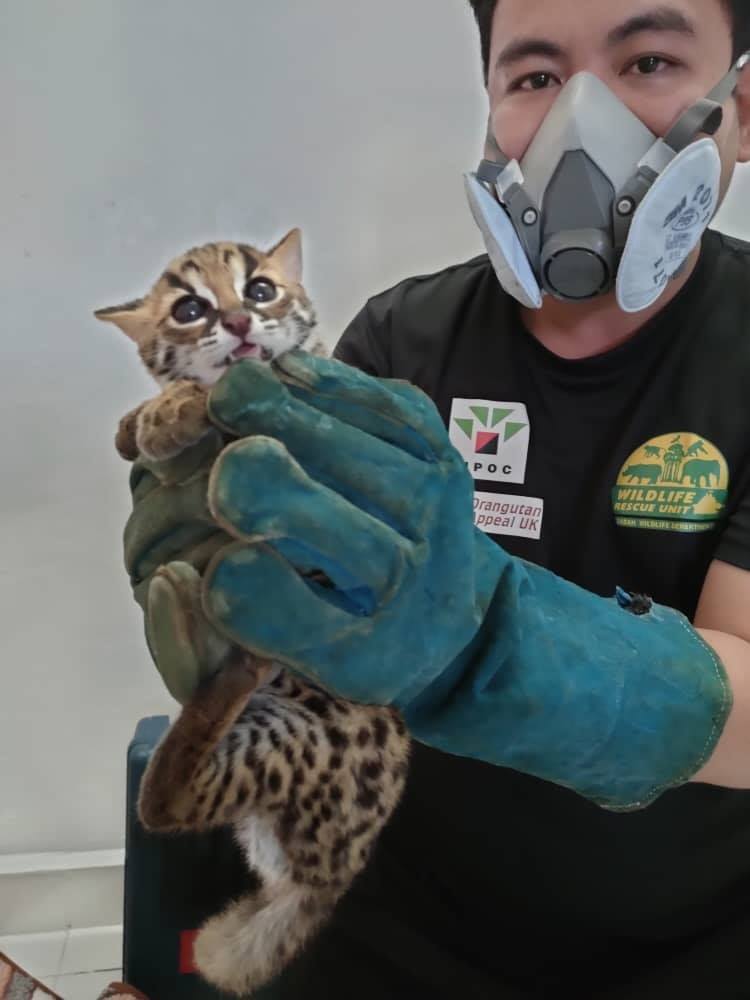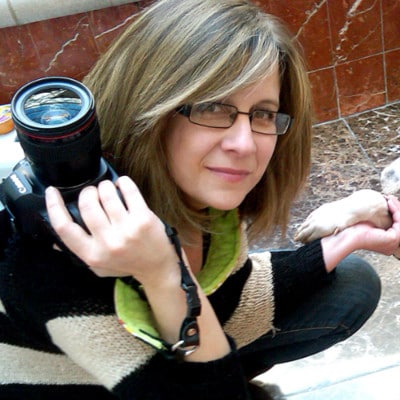Did you know there is a dedicated team of rangers and veterinarians in Malaysia that are working to create a global movement to help save rainforest species?
Dr. Nathan Sen is the heart and soul of the work being done to help conservation efforts for the wildlife that calls Malaysia home.
“Wildlife conservation is a global issue, just like climate change,” explains Wildlife Rescue Unit (WRU) Manager and Chief Veterinarian Nathan Sen, DVM. “Malaysia is a biodiversity hotspot. We have species in Malaysia that live nowhere else in the world, such as the Proboscis monkey and the Bornean pygmy elephant. There’s a whole and often different ecosystem here. If it is messed up, there will be consequences for the entire world and our next generations.”
The world is listening to his message and we hope his efforts to do good will be inspiring to others.
About The Wildlife Rescue Unit
Located in Malaysia’s Sabah state is The Wildlife Rescue Unit (WRU). This organization works hard to keep animals safe and offers medical assistance to those in need. Formed in 2010 with just 4 people it is now 40 people strong and is celebrating 10 years of rescuing and rehabilitating animals.
Sahabat the baby elephant is one of those that was in need.
While COVID-19 left Malayasians in lockdown, a baby elephant, named Sahabat, was found wandering away from his herd. This little guy had severe eye infections and was nearly blind. WRU helped Sahabat and after 8 months of care, love and medicine he was able to see again and will soon be released back to his natural habitat.
This is what WRU is all about.
To go from what you see below to a completely healthy eye is nothing short of amazing. Without WRU this guy may not have had a chance of making it in the wild.
They also create and manage education and enforcement. They recently received funding to survey the wildlife population to evaluate the effectiveness of current conservation efforts for the Bornean orangutan and pygmy elephant. These are two of the most iconic wildlife species for the region.
Public awareness is another critical part of what they do. Many of the rangers on their team come from indigenous communities where hunting wildlife was a part of the lifestyle. With some education, this has become less of a lifestyle and some of those who used to hunt animals are now saving animals and calling WRU when an animal needs help.
An orangutan on the brink of death.
One of those calls was about a severely dehydrated orangutan who did not have a good prognosis. WRU brought her to rehabilitation center where she was found to have a bacterial infection.
Two weeks later she was up and eating and is another animal that they look forward to releasing back into the wild.

This is what the WRU is about! The animals in the rainforests of Malaysia are some of the rarest in the world so protecting them and educating the world about them is key to their longevity.
Who Funds The WRU
WRU obtains most of its funding from the Malaysian Pal Oil Council but receives financial support from other organizations including:
- Orangutan Appeal UK
- The Oregon Zoo
- US Fish & Wildlife Service
We can all be involved in their fundraising though by supporting brands that use sustainable palm oils! Let’s learn a little more about how this oil can make an impact for these animals.
How Sustainable Palm Oil Helps Malaysian Animals
Malaysia is responsible for 28% of the world’s palm oil production. Palm oil can be used in everyday items from food to cosmetics.
They do have strict laws and a nationally mandated sustainable palm oil certification program which protects over 50% of the forested areas in the country. Roughly 30% of the oil produced is done by small family farmers who want to promote the coexistence of humans and wildlife. Many have created riparian reserves and corridors to allow the wildlife to travel through their properties.
Palm oil is in competition with other oils like soy, corn sunflower and canola. But what many do not realize is that 1/10th the mount of land is needed to produce palm oil in comparison with other oils. This means forests are less impacted and the oil palms can bear fruits for 25 years or more while other types of oils needed to be replanted or seeded every year.
The Malaysian palm oil industry offers a great amount of financial support to wildlife conservation. So when you support brands that use sustainable palm oil you are helping preserve the animals living in the Malaysian rainforests.
How You can Help The Wildlife Rescue Unit
It is easy!
By supporting brands that use certified sustainable palm oil – you will be helping the Wildlife Rescue Unit continue their work.
Some of the brands that have pledged to use responsibly produced palm oil include:
- Coca-Cola
- Nestle
- Unilever
When you buy from companies like these – you are helping save elephants, orangutans and other animals that reside in the rainforests.

Who Is Dr. Senthilvel K.S.S.Nathan, DVM
Dr Senthilvel K.S.S. Nathan (a.k.a. Sen Nathan) graduated from University Putra Malaysia with a Degree in Veterinary Medicine (D.V.M) in 1997. He joined the Sabah Wildlife Department (SWD) thereafter as the Manager and Veterinarian for the Sepilok Orangutan Rehabilitation Centre, Sandakan.
Presently based in Kota Kinabalu, has recently been promoted as the SWD’s Assistant Director, he oversees SWD’s various conservation programs such as the Borneo Rhino Sanctuary, the Borneo Elephant Sanctuary, and the Sabah Wildlife Rescue Unit (WRU). He is also a member of the IUCN Asian Rhino Specialist Group.
Dr Nathan’s avid love for nature has brought him into the deep jungle of Sabah, successfully leading and coordinating numerous wildlife rescue and translocation operations over the years. In his key role for such activities, he works closely with SWD’s partners in conservation such as the Malaysian Palm Oil Council and the Sime Darby Foundation.
He will be very soon heading the Orangutan and elephant survey project in Sabah for the next 24 months.
Learn More About WRU
If you are interested in learning more about the organization and want to see what they are up to you can follow them on social media.
Their Facebook page and YouTube channel are filled with videos of the work they do and give you the chance to see some rare animals in their natural environment.
I wanted to give a thank you to publicist Jennifer Hanson who brought this news to my attention!

